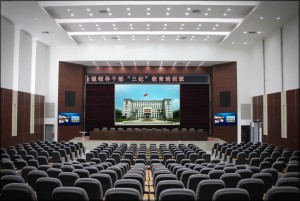It’s a good idea to attend industry conferences and seminars, but you only get out what you put in.
I’ve been talking to presenters and catching up with thought leaders ahead of emceeing a conference next month. I know that an effective way to manage nerves on the day is to prepare as much as possible in advance. If I understand what the presentations are about, what’s shaping the relevant industry and get a feel for what delegates want to achieve, I’ll be better equipped to roll with the punches than if I turn up and wing it.
The process led me to thinking a lot about attendees, both those who have already registered and others who will sign-up over the coming weeks. After all, they’re the heartbeat of any convention; without an audience what is a conference?
This blog isn’t about choosing the right events to attend; it’s designed more as guidance once a positive decision has been made to register.
It goes without saying that this advice is only applicable if an attendee has done their research and chosen a conference that will offer relevant, educational presentations and simultaneous opportunities to network and gather intelligence—as an absolute minimum. In many cases, that and more will probably be a prerequisite to getting sign-off on the registration fee and time away from the workplace.
To achieve anything from a seminar takes proactivity before, during and after the event. There’s a small chance that, if the presenters are top notch, an attendee can sit at the back of the room, absorb some key information and disappear back to their desk or workstation feeling enlightened. More likely though is that it will take a lot more than that.
Here are my top 11 tips:
1. Book early
There might be an early-bird rate on offer for a start but, of greater importance, the more time one has before a conference takes place the better.
2. Hit the ground running
Don’t put the date of the conference in the diary and do nothing until it comes to planning a travel itinerary the day before. Get on social media and find other attendees; a good event should have its own hashtag. The decision to attend was probably based on some of the speakers, so find them on social platforms and get acquainted.
If a particular presenter stands out as being more relevant than others, challenge them to address your areas of interest. Say, a plant and facilities manager needs to kit out a new warehouse with a particular kind of equipment, the presenter addressing that kit could hold the key to a more productive, efficient and cost-effective installation.
Send them a Tweet: ‘I’m looking forward to your paper. Will it include references to new-builds & installations? #conferencehashtag’
Think about what questions certain presenters might be able to answer. Of course, the sessions themselves will generate talking points, and speakers will appreciate an attendee staying on topic, but it pays to be prepared.
Engage with organisers too. What are they offering attendees that it might be useful to know in advance? Conference websites might not be up to date and a sponsor may have made a late decision to stage a cocktail party. It’s better to find out before travelling than book a return train ticket that turns out to be two hours early.
Is there a co-located exhibition?
Is there an exhibitor list?
Are there two or more tracts?
Might we need two attendees from our company to get the full benefit from participation?
What is the event demographic?
Might it be beneficial even as an attendee to display our wares?
Without listing endless questions, I’m trying to make the point that so much can be achieved with weeks to go until the event.
3. Get there early
Even if the conference is only a couple of hours by car or train from home, I’m an advocate for staying in the event hotel or one nearby the night before. Not only does this eliminate stress in the morning, but also there are often like-minded people to network with over dinner or drinks. If the advice in points one and two has been followed, connections may have already been made and meetings arranged.
The same applies for the next morning. If registration is at 7:30 ahead of the opening presentation an hour later, get in the queue at 7:00. I’m serious. Be among the first to collect a badge, programme and engage with organisers. As fellow early birds trickle in, it’s easy to make introductions and plan the conversations that might need to take place later in the day. If there is an exhibition area onsite, this is also a good time to see what’s on offer when the room is quiet.
4. Get a good seat
It’s not always important to be in the front row and certainly not priority to be nearest the exit or toilets.
Find the place that is going to allow one to get the most out of participation. Consider the quality of your sight and hearing. The audiovisual technology should be state-of-the-art, but if you struggle to see from afar get as close as you can.
Sitting with or near peers and connections of potential value can also enhance the experience.
5. Keep your phone ON
I’m likely to polarise opinion here but I think a modern day event is better when people have their phones on and can live Tweet / network. I do see the point that it is disrespectful to a speaker if 100 people out of an audience of 150 are looking at their phones throughout a presentation and others leave the room to take calls, but there is a balance to strike.
While ring tones should be on silent and emails or text messages from friends should be left for another time, it’s perfectly acceptable to post a Tweet about the session. No presenter should mind if someone wants to post: ‘Great session from Tony Smith about #rigging. Inspect slings before every use. #conferencehashtag’
Or: ‘I’m here at #conferencehashtag learning a lot about #wirerope.’
I understand this is a contentious subject and if you’re in any doubt about causing offence, perhaps it’s prudent to check with the speaker in advance of their paper. They might be protective of the information on the slides and not appreciate someone in the front row photographing every one. That said, if that is the case, they should make it known before they start speaking. And they’ve made a choice to put their information in the public domain.
It’s 2017 and we have to accept that photos, videos, live content and social media need to be embraced at conferences, not suppressed.
6. Take notes, sparingly
It’s easy to forget key points from presentations and I would encourage any attendee to make notes however they wish: on a smart device, on a pad or on the conference literature (some organisers reserve space for this).
However, it isn’t a competition about who can leave a session with the longest transcript. In reality, if one has taken 50 pages of notes over a one-day event, what are the chances of them ever mining it for concise takeaways on the train home or in the office?
If a presentation were particularly content rich, it would be better to ask the speaker for a copy or follow-up directly with them.
7. Speak to speakers
If you think a presenter did a good job and / or addressed key issues, please take the time to tell them as much. It’s hard to gauge how a presentation went from the isolation of the stage so questions and follow-ups go a long way.
If an attendee is likely to want to contact a speaker directly after an event, it’s advisable they make their intentions known in person. A presenter is more likely to remember someone who shakes their hand and gives them a card than they are someone who emails: ‘I was at the event please tell me again everything that was in your presentation.’
8. Working lunch
Breaks are poorly named at conferences. Granted, there is a day job to take care of but when a session breaks for coffee or lunch, too many opportunities are missed by disappearing out of the venue to make calls or get fresh air.
It’s prudent to network with fellow attendees and get their opinions on presentations. They might have picked up something that another delegate didn’t. Without being creepy or lurking behind pillars, it’s always interesting to hear what people are saying as they filter out of a room. Perhaps a good point is raised and it leads to another business or networking opportunity.
If there wasn’t a chance in the morning, now might be a good moment to peruse the exhibits. If the organisers are clever, they will serve refreshments in an area where attendees can view tabletops or look at exhibitors’ stands at the same time. Sometimes it’s easier to approach a person with a cup of coffee than it is to stride towards them empty handed.
I’ve referenced drinks receptions and cocktail parties already but it’s worth adding how much more relaxed people can be at the end of formalities with a beverage in hand. As such, it’s worth taking part. Maybe there’s someone there who has felt uncomfortable about approaching another delegate during the day but now feels more capable of doing so.
9. If you don’t ask you don’t get
As a paying, indeed any, attendee at a conference, participation entitles them to get as much from the experience as possible. These are just some of the questions that one can ask before leaving:
Will presentations be made available?
Is it possible to get a list of attendees and their contact details?
Do you have an exhibitor list and their contact details?
Will there be a discounted rate for return attendees next year?
Where and when do you plan to stage the event again?
Are there any plans to change the size, duration or target demographic?
10. Golden nuggets
There’s something I say at the start of every conference I chair to the point where it’s become a running joke in the lifting industry, where I most commonly ply my trade:
‘Even if you only took one nugget of information from each of the presentations, think how enlightening the experience would have been come close of play.’
And I stand by it!
Attending a conference isn’t about memorising every detail or gaining the same amount of knowledge that one would at a tailored training course. But there are gems on offer. If a conference has eight speakers, that’s eight new connections to make and eight lessons or pieces of information to digest. Given that thought leaders or influencers in an industry often deliver content, consider the value of that information.
11. Follow-up
Demonstrate a bias to act on your word and follow everything up. If you attend the event the following year, you’ll feel like part of the furniture.
I hope to see some of you at the LiftEx Conference, which takes place on Day One of the show—29 November—at the International Centre Telford.
Follow the business on Twitter @BridgerHowes
Richard Howes
Director, Bridger Howes Limited
rich@bridgerhowes.com








